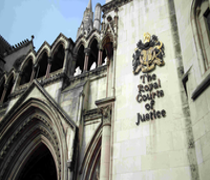PCLL Conversion Examination June 2026 | BUSINESS ASSOCIATIONS | COMMERCIAL LAW | EVIDENCE | JUNE 2026 PCLL CONVERSION TIMETABLE | PCLL TESTIMONIALS | REGISTRATION FORM
PCLL Conversion Examination June 2026
The IP Learning Preparatory Course for the Conversion Examination for PCLL Admission June 2026
Course Prices
Business Associations HK$8800
Commercial Law A HK$6800
Commercial Law B HK$6800
Commercial Law C HK$6800
Evidence HK$8800
Hong Kong Constitutional Law HK$8800
Hong Kong Land Law HK$8800
Hong Kong Legal System HK$8800
At IP Learning our goal is to prepare effectively for the Hong Kong Conversion Examination for PCLL Admission:
__________________________________________________________________
THE IP LEARNING PREPARATORY COURSES FOR THE HONG KONG CONVERSION EXAMINATION FOR PCLL ADMISSION
ABOUT THE CONVERSION EXAMINATION
If you are not already a qualified lawyer, or you are qualified but do not yet have the necessary experience to be eligible to sit the Overseas Lawyers Qualification Examination, you will need to pass the Postgraduate Certificate in Laws (PCLL) as a necessary step to admission as a Hong Kong lawyer. To be eligible for admission to the PCLL, you must demonstrate competence in 11 Core Subjects:
- Contract
- Tort
- Constitutional Law
- Criminal Law
- Land Law
- Equity
- Civil Procedure
- Criminal Evidence
- Evidence
- Business Associations
- Commercial Law
Graduates who hold a Bachelor of Laws degree from universities in common law jurisdictions outside Hong Kong may demonstrate competence if the core subjects have been completed as part of their degree. This is likely to be the case with the first 8 subjects in the list, but less likely for the other 3 subjects. Exemptions may be granted for individual subjects or parts of a subject. In the absence of such exemptions, all students who are not graduates of one of the 3 Hong Kong Universities offering law degrees and/or JD degrees will have to pass the relevant subject in the Hong Kong Conversion Examination for PCLL Admission (unless they have attended as a visiting “internal” student in one of the three universities awarding LLB and /or JD degrees in Hong Kong and passed the requisite examination).
The Conversion Examination comprises 6 subjects in all, 3 Core subjects and 3 Top-Up subjects:
| Core subjects | Top Up subjects |
| Business Associations | Hong Kong Constitutional Law |
| Commercial Law | Hong Kong Land Law |
| Evidence | Hong Kong Legal System |
To find out whether you are exempt from any of these subjects please contact the Conversion Examination Board Administration: www.pcea.com.hk
IP Learning offers full courses and revision seminars for all 6 subjects.
Contact us by telephone: (852) 2858 1000; or email: enquiries@ip-learning.com
BUSINESS ASSOCIATIONS
The Business Associations course commences with a comparison of three different types of business association: sole proprietorship, partnership, and the registered company. The course continues with a discussion of the nature and creation of partnerships, the legal rights and duties of partners in their relations with each other and with third parties. The section of the course on partnerships ends with a brief discussion of how partnerships are dissolved.
The major part of the course is concerned with registered companies.
TOPICS
- Origins of the registered company in Hong Kong.
- Types of company.
- How companies are incorporated and registered, with particular reference to problems relating to incorporation.
- The doctrines of “separate corporate personality” “lifting the veil of incorporation” and “limited liability”.
- The constitution of a company and the extent of the power to amend the constitution.
- Corporate capacity.
- Membership and rights of members.
- Management and control of the company, with particular reference to the relationship between the board of directors and the members’ general meeting.
- Directors duties at common law, in equity and under the Companies Ordinance
- Protection of minorities at common law, in equity and under the Companies Ordinance.
- Winding up of companies.
COMMERCIAL LAW
The Commercial Law syllabus for the Hong Kong Conversion Examination for PCLL Admission is divided into three parts: Unless exempted, candidates must achieve a pass in all three parts: see www.pcea.com.hk for the procedure for applying for exemptions.
Part A – Sale and Acquisition of Goods
The Part A course discusses the transfer of title to legal and equitable interests in goods, the principle nemo dat quod non habet, and the exceptions to nemo dat in the context of sales and gifts of goods. The sale of goods forms the core of the course. Topics include:
1. Duties of Sellers and Buyers, Express and Implied Terms
2. Implied Terms
3. Passing of Property
4. Applicable nemo dat exceptions
5. Remedies
Part B – Personal Property
Part B focuses upon the property side of commercial law. The course commences by identifying the meaning of personal property, and examines the different interests that can exist in personalty. Particular attention is paid to ownership, finders’ possessory interests and bailment, and the distinction between the acquisition of legal and equitable interests.
The course continues with an examination of possessory and non-possessory security interests in personal property, with particular reference to pledges, liens, mortgages (other than mortgages of land) and bills of sale.
Company securities in the form or fixed and floating equitable charges, registration requirements, retention of title and Romalpa clauses, are explained and illustrated.
The course contrasts legal, equitable and statutory assignments of pure intangibles such as debts and the process of negotiation of bills of exchange, examines priority and considers the banking and customer relationship.
Part C – Consumer Credit and Protection
Part C of the Commercial Law syllabus examines statutory and common law means of protecting consumers in consumer credit transactions and consumer contracts. Topics include:
1. The Regulatory Framework
2. Function and Power of the Consumer Council, Funds for Litigation and Group Litigation
3. Consumer credit, with particular reference to the law relating to guarantees.
4. Consumer protection legislation, including the Unconscionable Contracts Ordinance, Cap 458, the Control of Exemption Clauses Ordinance, the Supply of Services (Implied Terms) Ordinance, Cap 71 and the Money Lenders Ordinance, Cap. 163.
5. Common law protection of vulnerable consumers, including the avoidance of contracts on the grounds of misrepresentation, undue influence, or duress.
6. The doctrine of relation back and fraudulent preference.
EVIDENCE
The Evidence course examines the important aspects of the Law of Evidence, both Civil and Criminal as set out in the PCLL Conversion Examination syllabus.
The essential terminology is considered, as are the roles, functions and responsibilities of the principal players in the trial process, the Judge and Jury, Counsel and witnesses.
Problem areas such as judicial discretionary exclusion of admissible evidence, Competence and Compellability of witnesses, the ‘Rule Against Hearsay’, Memory Refreshing, the ‘Rule Against Narrative’, lay and expert opinion and admissions and confessions are examined in depth.
The leading cases and texts on the subject are incorporated and recent developments in this area of the law are identified and discussed in the context of the above areas.

